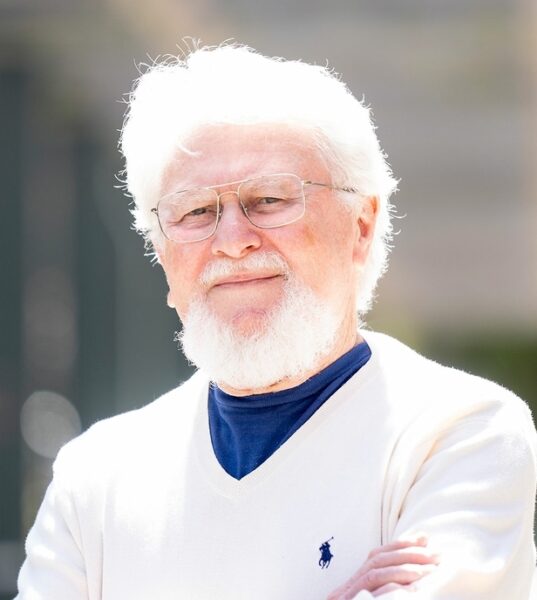ATP Bio
About ATP-Bio
The Engineering Research Center (ERC) for Advanced Technologies for the Preservation of Biological Systems (ATP-Bio) aims to “stop biological time” and radically extend the ability to bank and transport cells, aquatic embryos, tissue, skin, whole organs, micro physiological systems (“organs-on-a-chip”), and even whole organisms through a team approach to build advanced biopreservation technologies.
For more information about ATP-Bio, please visit https://www.atp-bio.org/
About ATP-Bio at Berkeley
ATP-Bio at Berkeley consists of three primary labs:
1) The Kevin Healy Lab, which studies Isochoric cryopreservation of hiPSCs-derived cardiac micro physiological systems (MPS). Microphysiological systems (MPS) have emerged as a powerful in vitro culturing platform that incorporates microfluidic flows to provide tissues with culture medium circulation at volumes that are computationally predictable and more physiologically relevant than static well plate culture. This makes MPS amenable to studying the effects of cryoprotective agents and distribution within a dense tissue cultured in the MPS. However, most of the characterizations and monitoring of tissues in the MPS rely on the optical way using microscopy techniques and off-chip analytical assays. In this regard, electrical sensor-integrated MPS allows real-time on-chip analysis with improved temporal resolution and quantification. Electrical impedance sensing (EIS) is a useful tool to study cell behaviors, including cell growth, monolayer permeability, and migration, especially for endothelial cells. EIS technique can provide an analytical tool for vascular MPS with endothelial cells by enabling the quantification of cell growth and monolayer barrier function. Vascular MPS with endothelial cells can play a role as in-vitro testbeds to optimize the cryopreservation protocol of vascularized systems for organ transplantation, regenerative medicine, and long-term cryopreservation
2) The Boris Rubinsky Lab, which works on Isochoric supercooled biopreservation and 3D robotic bioprinting.
Rubinsky’s special research interests include: heat and mass transfer in biomedical engineering and biotechnology in particular low temperature biology, bio-electronics and biomedical devices in particular micro and nano bionic technologies and electroporation, medical imaging in particular electrical impedance tomography and light imaging, biomedical numerical analysis in particular genetic and evolutionary algorithms and fractal techniques.
3) The Chris Dames Lab, researches Thermal Opportunities in Cryopreserved Systems.
The Dames’s lab interests lie in fundamental studies of heat transfer and energy conversion at the nanoscale, using both theoretical and experimental methods. Some topics of current interest include graphene, nanocrystalline materials, mean free path distributions, thermoelectrics, biological systems, and
Learn more about ATP-Bio here
ATP-Bio Research Experience Undergraduate Program
Apply for the 2024 summer program! Application deadline is March 17.
https://www.atp-bio.org/atp-bio-engineering-workforce-development-reu
ATP-Bio in the News:
PBS NewsHour will air a broadcast story on Mary Hagedorn and Michael Henley’s groundbreaking coral cryopreservation work on anisotropic and nonlinear transport including thermal rectification. In ATP-Bio, the focus is on characterization and phase tracking of amorphous and crystalline ice for the purpose of biological tissue preservation.
Saturday, February 3 at 6 p.m. ET. The story not only features our efforts to biobank corals but also highlights the cryopreservation lab at the Conservation Biology Institute.

UC BERKELEY ENGINEERS ELECTED TO THE NATIONAL ACADEMY OF INVENTORS
Congratulations to our very own Dr. Boris Rubinsky who was named an 2023 National Academy of Inventors Fellow!
Read about it here: https://www.atp-bio.org/news/dr-boris-rubinsky-named-2023-national-academy-of-inventors-fellow
The 2023 Fung Institute MEng Capstone Innovation Award is awarded to the MEng capstone team who has most effectively demonstrated the relevance of the problem they are trying to solve, the originality of their proposed solution, and the potential of their project’s impact.
Our team has been recognized for their project on “3d Cryoprinting” and has been selected as the recipient of the 2023 Fung Institute MEng Capstone Innovation Award. Through your team’s hard work, creativity, and initiative, you have demonstrated the fundamental values of the Institute and exemplified what we hope the MEng experience can be–culminating in a tangible technological advancement.
Winning Team: 3D Cryoprinting
Students: Joseph Roux de Bézieux, Fiona Le Gaonac’h, Gakpe Mckenzie, Ania Boukhezna
Advisor: Boris Rubinsky
Recent Articles & Published Papers:
Published papers from ATP-Bio at Berkeley from Boris Rubinsky Lab, Chris Dames Lab, and Healy Lab.
- Jazmin Isabel Velazquez, “Science with a story: diverse paths to discovery at UC Berkeley – How unique backgrounds in graduate student and postdoctoral researchers fuel innovation in science.” (2024)
- Parker, Consiglio, Rubinsky, Mäkiharju, “Direct comparison of isobaric and isochoric vitrification of two aqueous solutions with photon counting X-ray computed tomography” Elsevier (2023)
- New Technique Could Facilitate Rapid Cryopreservation of All Coral Species
- https://www.societyforcryobiology.org/index.php?option=com_dailyplanetblog&view=entry&category=member-news&id=131:2023-h-r-lissner-medal-boris-rubinsky
- https://www.science.org/toc/science/380/6652
- https://www.science.org/content/article/how-to-deep-freeze-entire-organ-bring-it-back-to-life
Questions? Please contact us at atp-bio@berkeley.edu